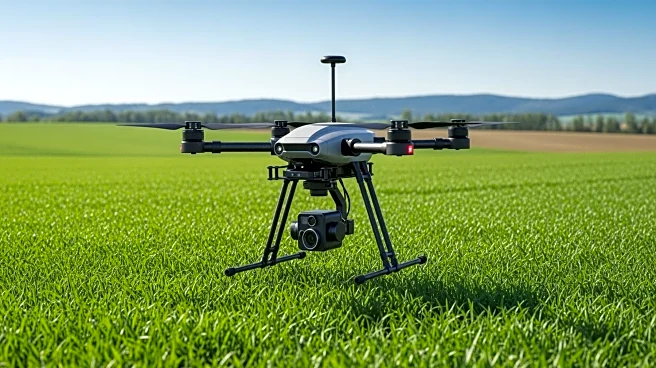What's Happening?
Ag tech is being promoted as a crucial tool for farmers to navigate the current farm crisis. Nathan Faleide, a veteran in ag tech, argues that despite initial fears and confusion, technology can offer
significant benefits, such as increased yield and cost savings. Faleide recounts the history of ag tech, which emerged from the 1980s farm crisis, driven by a need to prevent similar economic hardships. Innovations like satellite imagery, GPS guidance, and precision farming have been developed to support farmers in making informed decisions. As the agricultural sector faces new challenges, adopting ag tech is seen as a way to enhance farm management and productivity.
Why It's Important?
The integration of ag tech into farming practices is vital for the sustainability and resilience of the agricultural industry. As farmers confront economic pressures, technology offers solutions to optimize operations and improve efficiency. This shift could lead to increased food security and stability in rural economies. Moreover, the adoption of ag tech can drive innovation and investment in the sector, potentially leading to new business opportunities and job creation. Understanding the benefits and challenges of ag tech is essential for stakeholders aiming to support the agricultural community.
What's Next?
Farmers are encouraged to embrace ag tech to enhance their operations and mitigate risks associated with economic downturns. As technology continues to evolve, further advancements in precision agriculture and data analytics are expected to provide even greater support to farmers. Stakeholders, including policymakers and industry leaders, may focus on facilitating access to these technologies and providing education on their effective use. The ongoing dialogue about ag tech’s role in agriculture will likely shape future strategies and investments in the sector.









